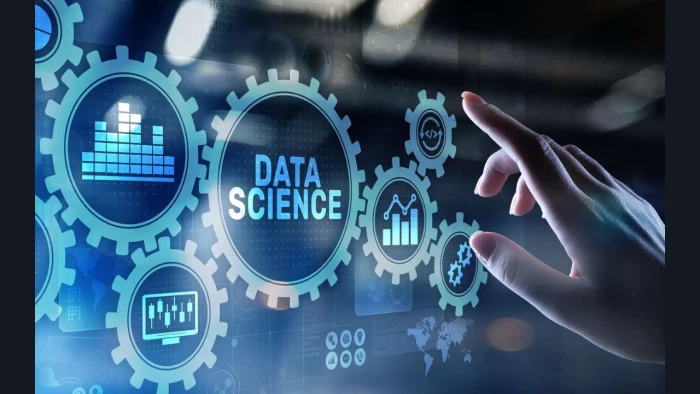Choosing a career has always been one of the most important — and sometimes overwhelming — decisions in life. Traditionally, people relied on parents, teachers, career counselors, or their own instincts to decide what path to take. However, today, artificial intelligence (AI) is entering this space. With career guidance platforms, skill assessments, and job-matching algorithms, AI promises to make choosing a career more data-driven, personalized, and accurate. But would you actually trust a machine to decide your future?
How AI Is Shaping Career Decisions
AI-powered career guidance tools analyze a person’s skills, personality, academic background, and even online behavior to recommend suitable career paths. Some platforms go further by matching users to specific industries or even job openings that align with their profiles.
- Personalized career assessments: AI tools can evaluate strengths, weaknesses, and career interests faster than traditional paper-based tests.
- Job matching algorithms: Platforms like LinkedIn, Indeed, or specialized AI apps suggest roles based on skill profiles and career history.
- Learning recommendations: AI can suggest courses, certifications, or micro-skills to prepare for in-demand careers.
Why People Might Trust AI for Career Guidance
- Data-driven decisions – Unlike humans, AI processes vast amounts of labor market data, job trends, and individual assessments to recommend options.
- Unbiased suggestions – Ideally, AI avoids the biases parents, teachers, or society might impose.
- Up-to-date insights – AI tools track fast-changing job markets, highlighting new roles in AI, cybersecurity, renewable energy, or biotech that career counselors may overlook.
The Risks of Letting AI Decide Your Career
However, relying solely on AI also comes with potential downsides:
- Over-reliance on algorithms: Career decisions involve emotions, aspirations, and values — things AI can’t fully capture.
- Hidden biases in data: AI is only as fair as the data it’s trained on. If the system has bias, it may reinforce inequality.
- Lack of human touch: Sometimes, guidance requires empathy, encouragement, and real-life stories that AI can’t provide.
Should I Be Concerned About AI Affecting a Career Path?
Yes — but not necessarily in the way you think. AI doesn’t just help you pick a career; it’s also transforming the careers themselves. Many jobs are evolving, some are being replaced, and entirely new ones are emerging. Here are a few things to consider:
- Automation risks: Routine jobs in areas like data entry, customer service, and manufacturing are increasingly being automated.
- Skill shifts: High-demand skills today (AI literacy, data analysis, digital marketing, renewable energy) may look very different in 10 years.
- Career adaptability: Instead of planning for one “lifetime job,” professionals need to think about continuous upskilling and flexibility.
- Opportunity creation: While AI may reduce some roles, it is also creating new career paths in machine learning, ethics in AI, AI safety, and hybrid human–AI collaboration roles.
The real concern isn’t AI itself, but whether individuals are prepared to adapt and grow with it.
How to Use AI for Career Guidance (with Example Prompts)
You don’t have to rely only on dedicated career platforms — general AI tools like ChatGPT, Google Gemini, or Claude can also provide career guidance if you ask the right questions. Think of AI as your brainstorming partner, not your final decision-maker.
Here are some example prompts you can try:
- Career exploration:
“Based on my background in computer science and my interest in creativity, what career paths could I explore that combine both?” - Skill gap analysis:
“What skills should I learn to move from being a graphic designer to a UX/UI designer?” - Future-proofing your career:
“Which careers are least likely to be automated by AI in the next 10 years?” - Resume tailoring:
“Can you suggest how to tailor my resume for a data analyst role if I currently work as a business analyst?” - Upskilling roadmap:
“Create a 6-month learning plan for me to become a digital marketing specialist with free or affordable resources.”
👉 Tip: Always double-check AI’s suggestions with real-world research, mentors, or professionals in the field. AI is great for sparking ideas, but the human perspective keeps your career choices grounded.
A Balanced Approach: AI + Human Guidance
The future of career guidance likely lies in blending AI with human mentors. AI can analyze trends and narrow down options, while humans add emotional intelligence, context, and lived experience. For example, an AI tool might suggest you’d be a great fit for data science, but a mentor can help you understand the daily realities of the job, whether it suits your lifestyle, and how to prepare.
Final Thoughts
Would you trust AI to choose your career path? For many, the answer might be: to some extent, yes — but not entirely. AI can serve as a smart career compass, pointing toward promising opportunities, but the ultimate decision should remain human. After all, a career isn’t just about skills and salaries; it’s about passion, purpose, and personal growth — things that no algorithm can fully measure.

